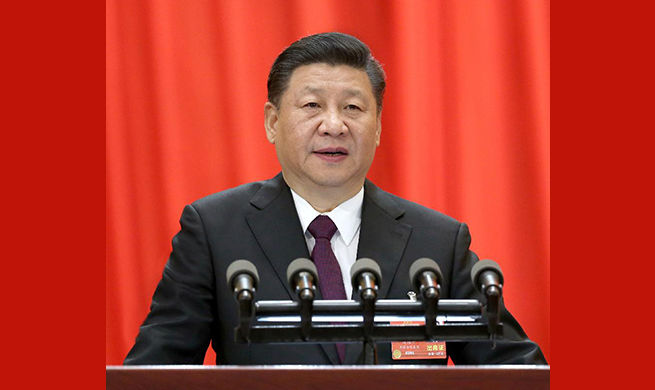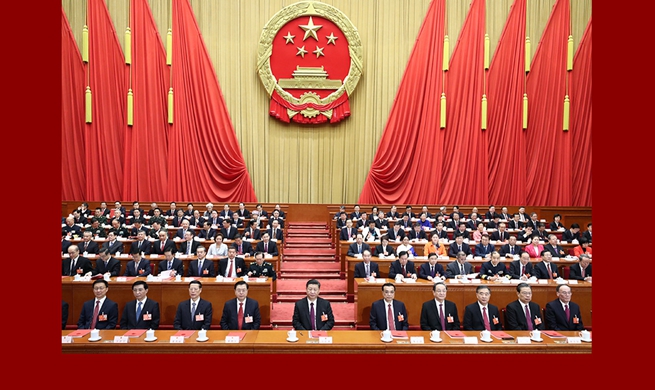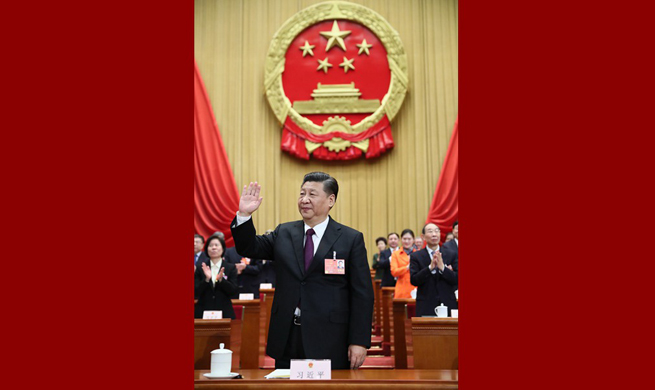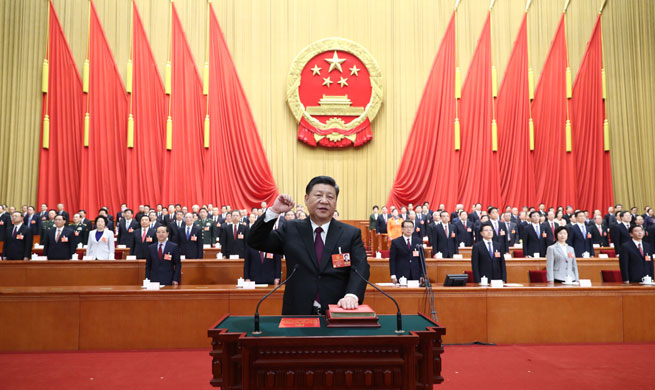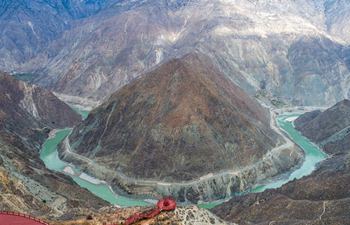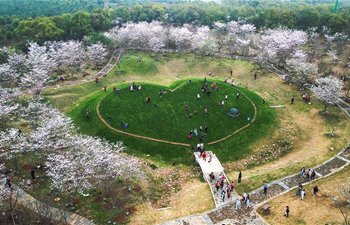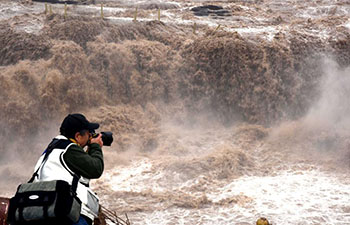DAMASCUS, March 21 (Xinhua) -- The United States has a premeditated will to strike Syria, but Washington is studying the possibilities and the results of such an "aggression," a Syrian minister told Xinhua in an interview, saying his country is ready to fend off any aggression.
The remarks of Ali Haidar, the minister of national reconciliation, come against the backdrop of the recent warmongering rhetoric of the U.S. and its Western allies, who are threatening to strike Syria, basing their threats on allegations of chemical weapons use in Syria by the government forces.
In an interview with Xinhua, Haidar said: "the U.S. aggressions are not new, and it won't be the first one, but the difference is that in previous times they would strike and say by mistake, but now they have a premeditated intention for the aggression."
Through observing the situation, Haidar continued: "there are attempts and preparations for such a strike, and this is not a media talk, there are military preparations."
The minister stressed that Washington is for sure prioritizing its interests, saying the U.S. will only strike Syria if it was so sure such a strike would be of a great benefit to its interests.
"The U.S. will not strike unless it was considering the strike to be of a great benefit to its interests and that it will harvest good results," he said, noting that "the U.S. desire is present and so is the appetite (for a strike) but the possibilities are being studied."
Haidar, meanwhile, said that the Syrian government should be ready for a U.S. strike should Washington decides to carry on with its threats.
"We have to be prepared for an American strike with the feeling that we have the ability to respond," he said, adding that the Americans must make several calculations before they could carry out their aggression on Syria, and to take into consideration the "power balance in the region and the Syrian reaction to such strike as well as the Russian stance that was clear from the beginning when threatening to retaliate against any aggression."
The United States and other Western allies have been accusing the Syrian army forces of using the chlorine gas in their wide-scale offensive on Eastern Ghouta, basing their claims on video footages emerging from that sprawling area about people suffering breathing difficulties.
The Syrian government renewed its stance of denying using or possessing such weapons, with government officials saying the United States is searching for a pretext to target Syria.
Earlier this month, The U.S. Ambassador to the UN, Nikki Haley, laid down a heavy warning for the UN Security Council, saying that if the international community can't come together to stop the bloodshed in Syria, the U.S. will.
"When the international community consistently fails to act, there are times when states are compelled to take their own action," Haley said, adding that "It's not the path we prefer, but it's a path we've demonstrated we will take, and we are prepared to take it again."
By saying "again," Haley meant that the U.S. could strike Syria again after President Donald Trump had ordered missile strikes against a Syrian government airbase in April 2017 after accusing forces loyal to Syrian President Bashar al-Assad of using sarin gas against civilians.
But as Haidar has said, several "calculations" must be made, specifically in terms of the possible Russian response, after Russia's Army General Valery Gerasimov recently warned that Russia's armed forces will take retaliatory measures to target both the missiles and their delivery vehicles in the event of a threat to the Russian military servicemen's lives in Syria.
The complex situation in Syria, which entered its eighth year of war this month, pushed the UN Special Envoy to Syria, Staffan De Mistura, to warn on Monday that Syria is heading for a catastrophic partition and could see the return of the Islamic State (IS) militants if there is no inclusive peace settlement.
"The truth is that a soft, long-term partition of Syria, which (is) the one that we are witnessing at the moment, in different areas of control, will be a catastrophe, not only for Syria but for the whole region," he told an audience at Geneva's Graduate Institute.
But Haidar has another interpretation to the remarks of Mistura, saying the remarks of the UN envoy aims to pressure the Syrian government to accept a political solution Mistura wants, not a political solution that could end the Syrian crisis.
"The Syrian state with its friends have a clear vision of the political solution and the political solution is present and what hinders it are the countries that carry on aggression on Syria," he said, noting that the military presence of Western countries in Syria further complicates the situation and cannot be conducive to reaching a political settlement.
"What hinders the political solution in Syria are the countries that are practicing aggressions on Syria," he said, noting that the foreign military presence "won't be able to fragment the country because the peoples have many methods to expel the occupations."
On his vision about the Syrian situation with the war entering its eighth year, Haidar said the situation in the country has two sides; the first is the military side and the second is the political one.
On the military level, the Syrian state with the support of its friends was able to make big achievements on the ground and almost eliminated the IS militants "and what is left are a few pockets of Daesh supported by the U.S.," the minister said, using the Arabic acronym of IS.
He further charged that "if it wasn't for the U.S. support to Daesh, it would have been already defeated completely."
He also referred to the crumbling militiamen of al-Qaida and like-minded groups as a result of the Syrian military campaign, saying "the Syrian state has achieved the biggest part of its duty and what is left (of rebel-held areas) is subject to political bickering more than a state decision to end it militarily because every remaining armed rebel is supported by a foreign country."
"This situation needs another kind of handling, not only the military methods but also through diplomatic efforts," he said.
As for the political landscape, "the political solution has become really hot recently and has largely developed recently because the countries that are supporting armed groups have stepped in when such groups were losing the battles on the ground and have attempted to interfere personally one time by a U.S. attack on Syria, and another time by an Israeli attack on Syrian sites and the latest of which is the Turkish attack on the city of Afrin."
So the political escalation went in two directions; the first is the return of the talks of chemical weapons file in Syria, which "was basically fabricated" while the second direction is the talks about the humanitarian file in Syria such as the situation in Eastern Ghouta, said Haidar.
He noted that the humanitarian file pretexts "have fallen because you have seen how the Syrian government was taking care of the civilians and secured their accommodation" after evacuating Eastern Ghouta in large numbers.
About the chemical weapons issue, Haidar said this file is being used frequently in accordance with the size of the U.S.-Russian confrontation on the international arena, adding that the Western stances in hindering the political solution in Syria have cast uncertainty about the political landscape of Syria.










